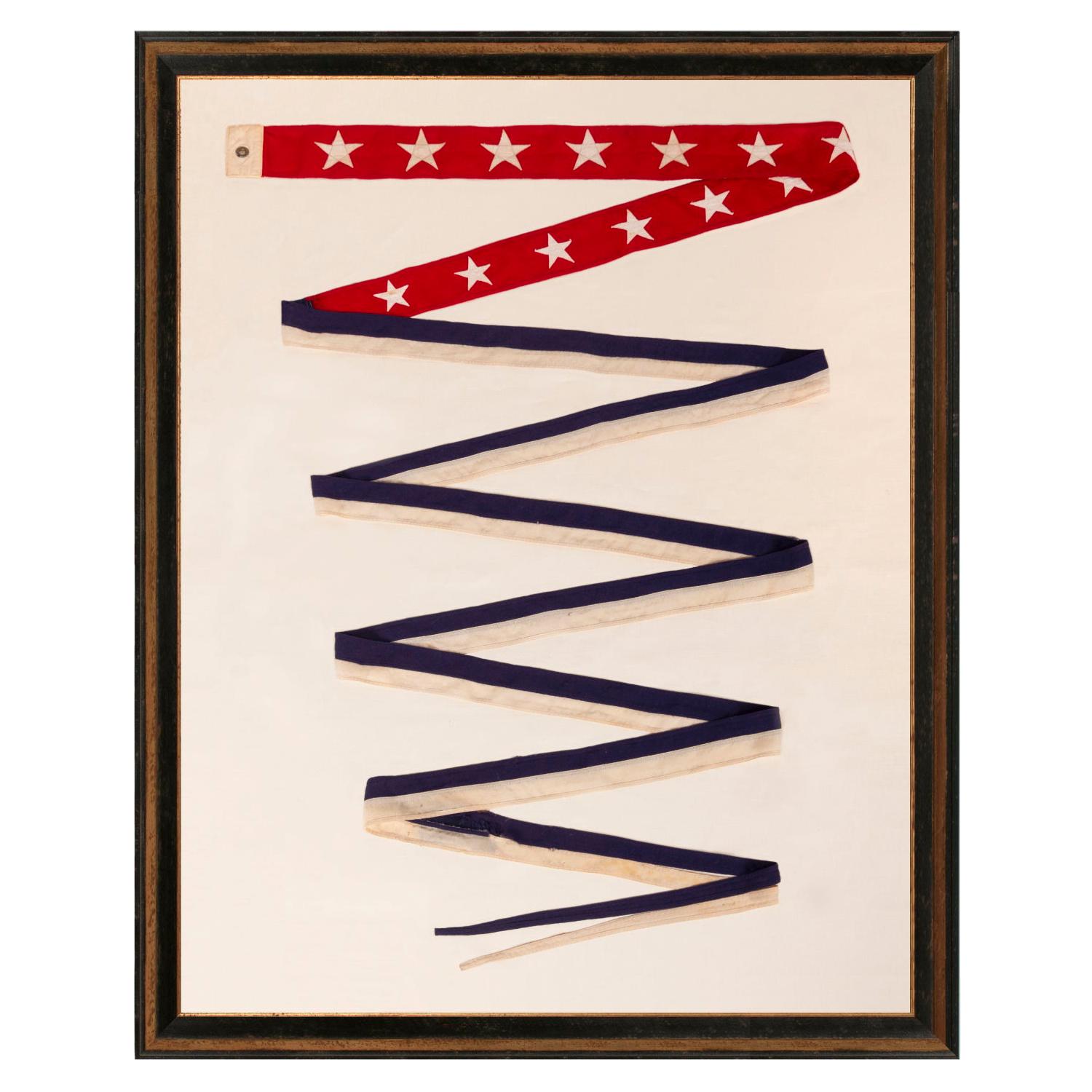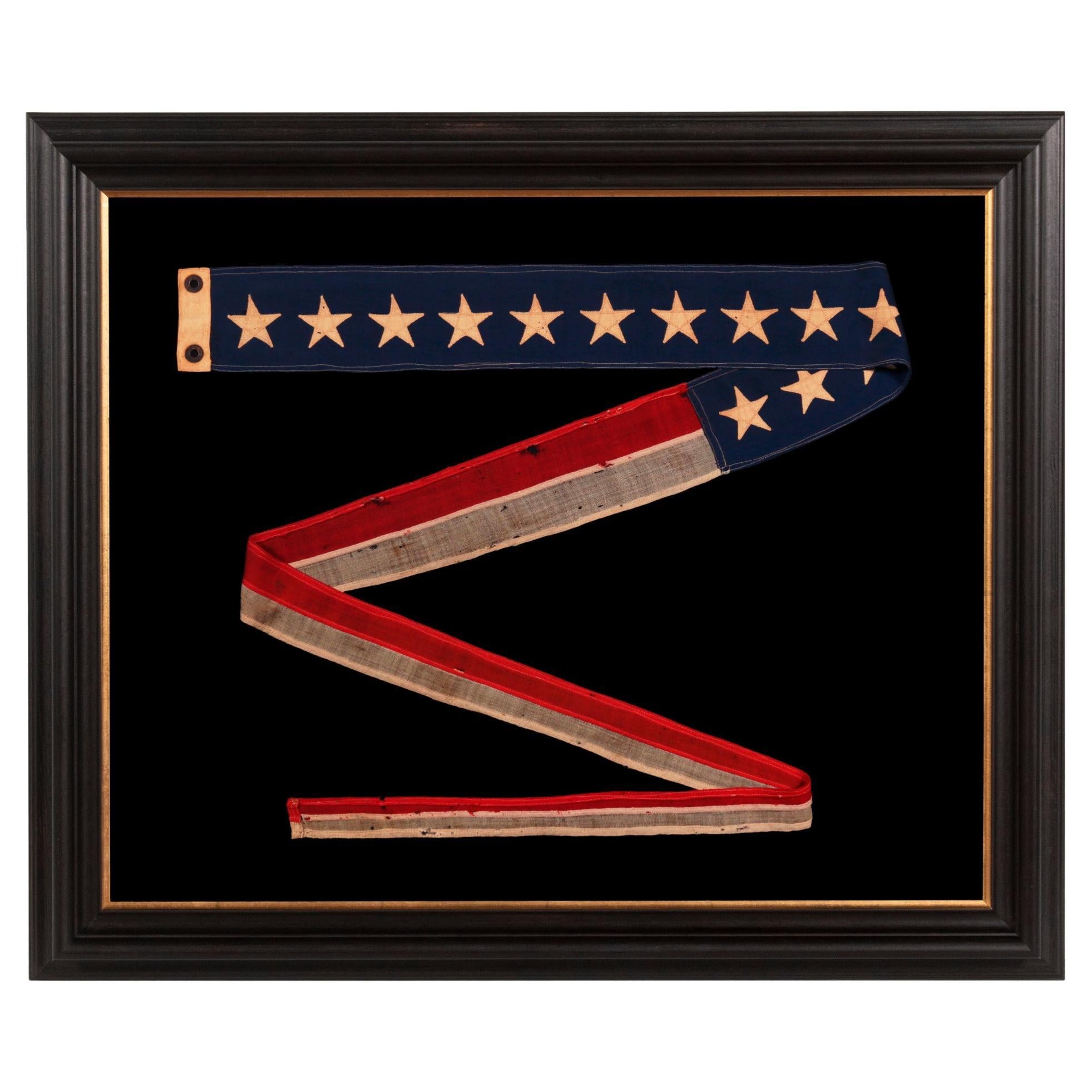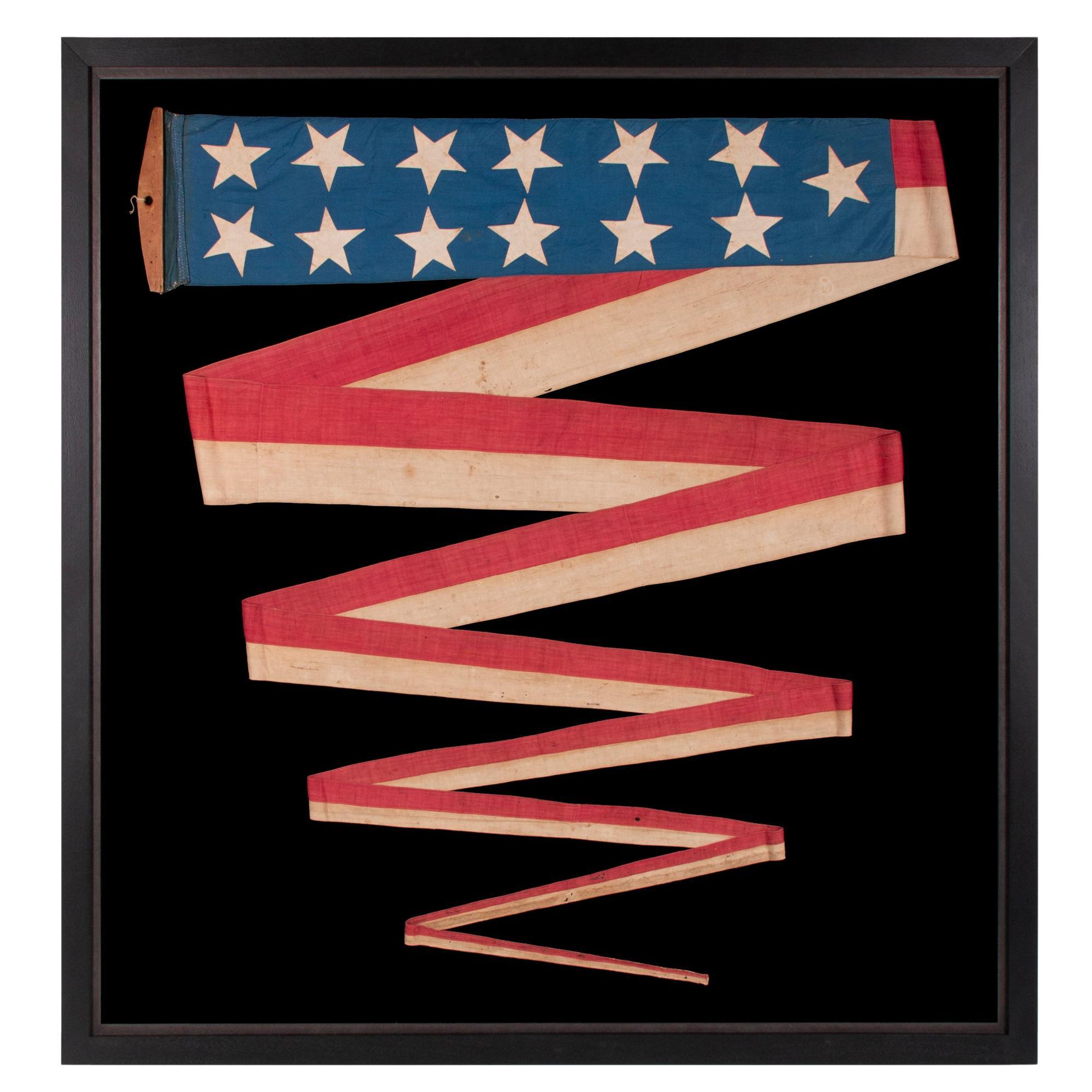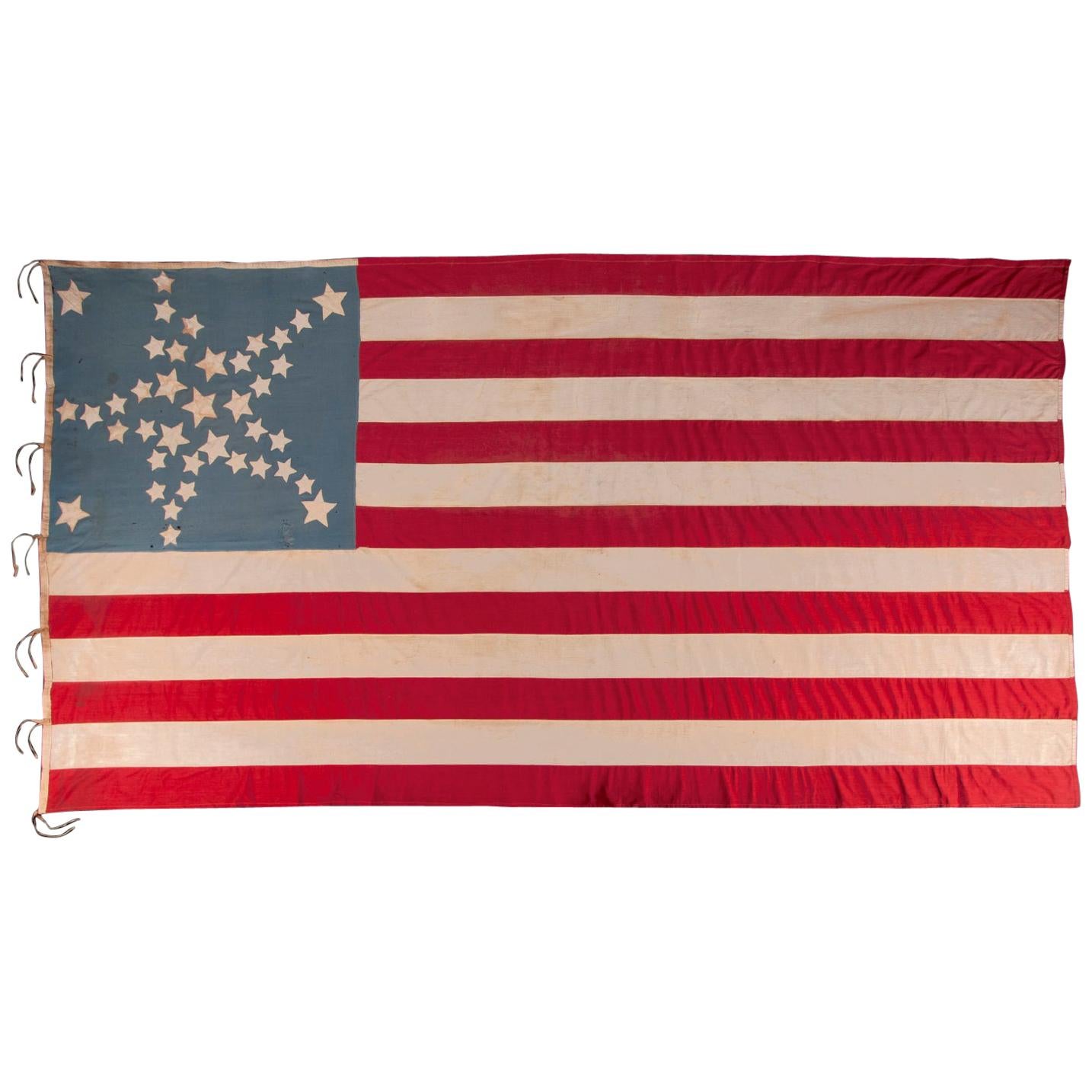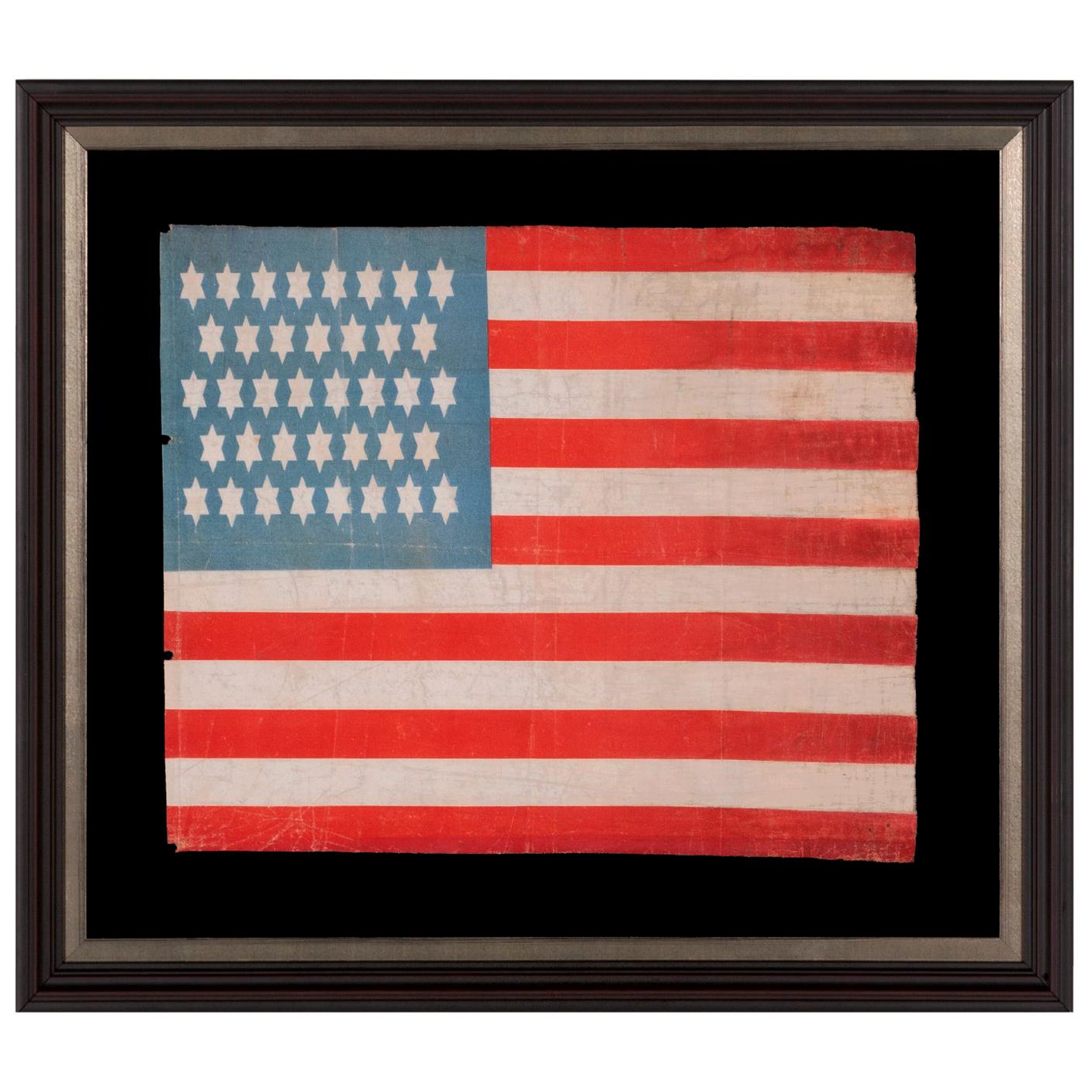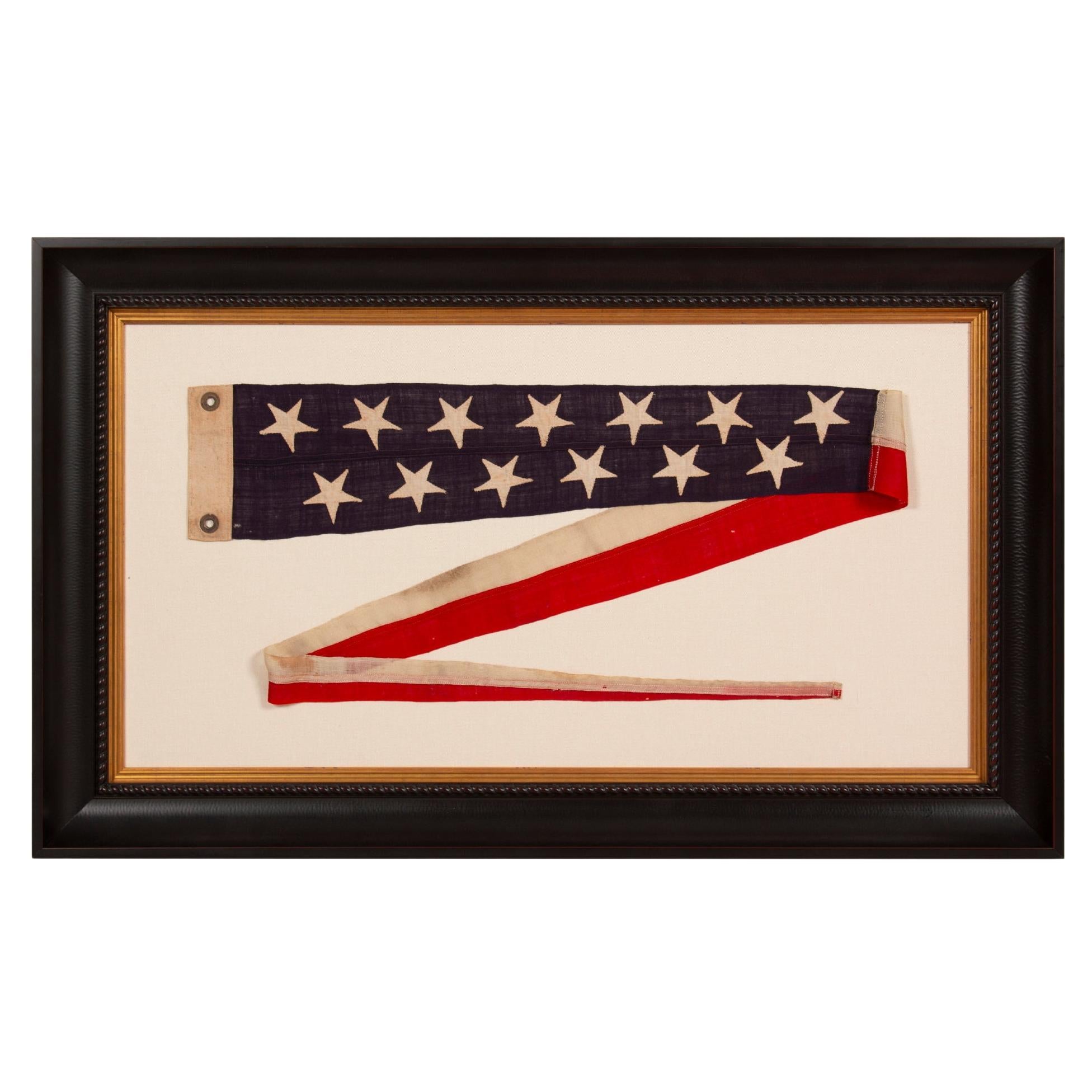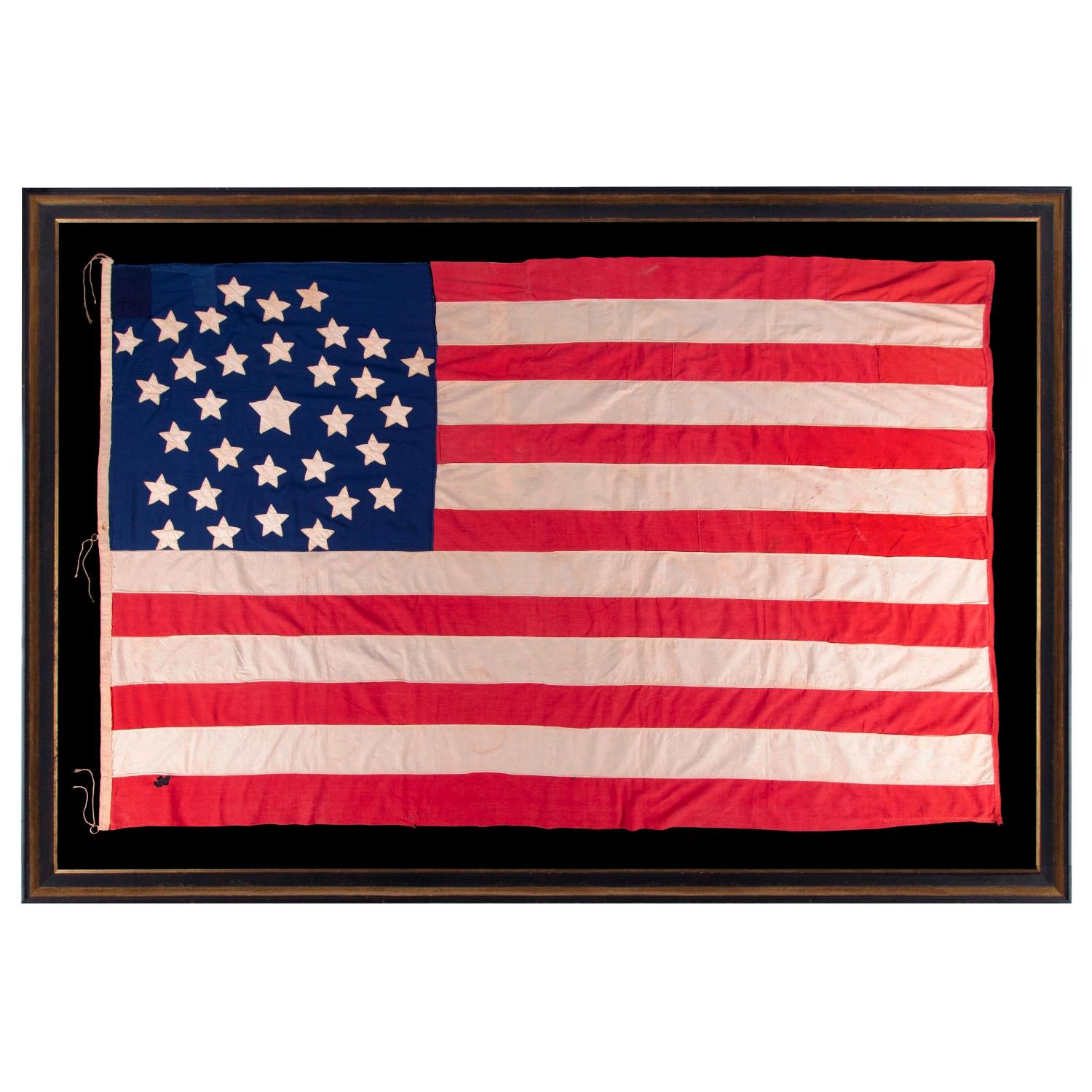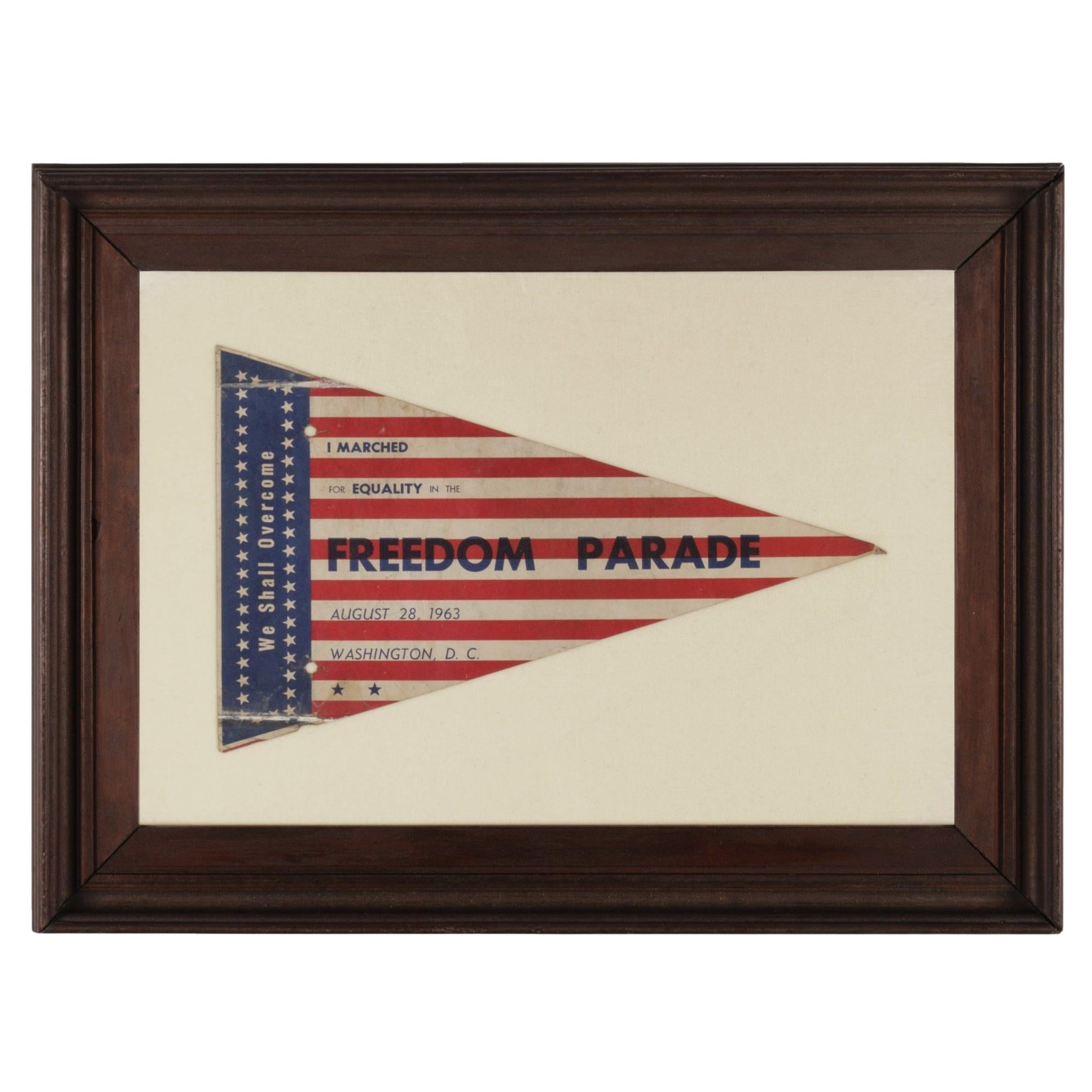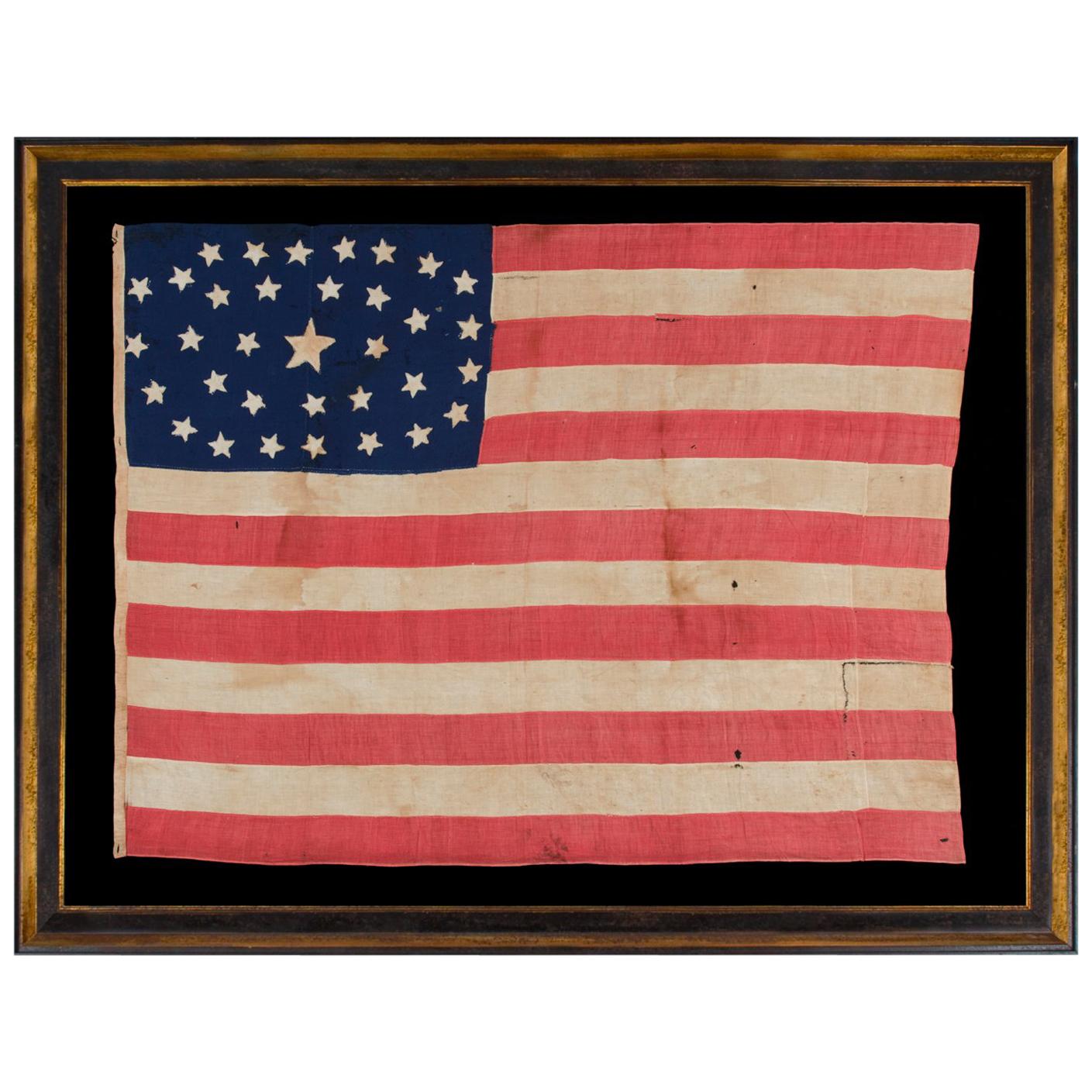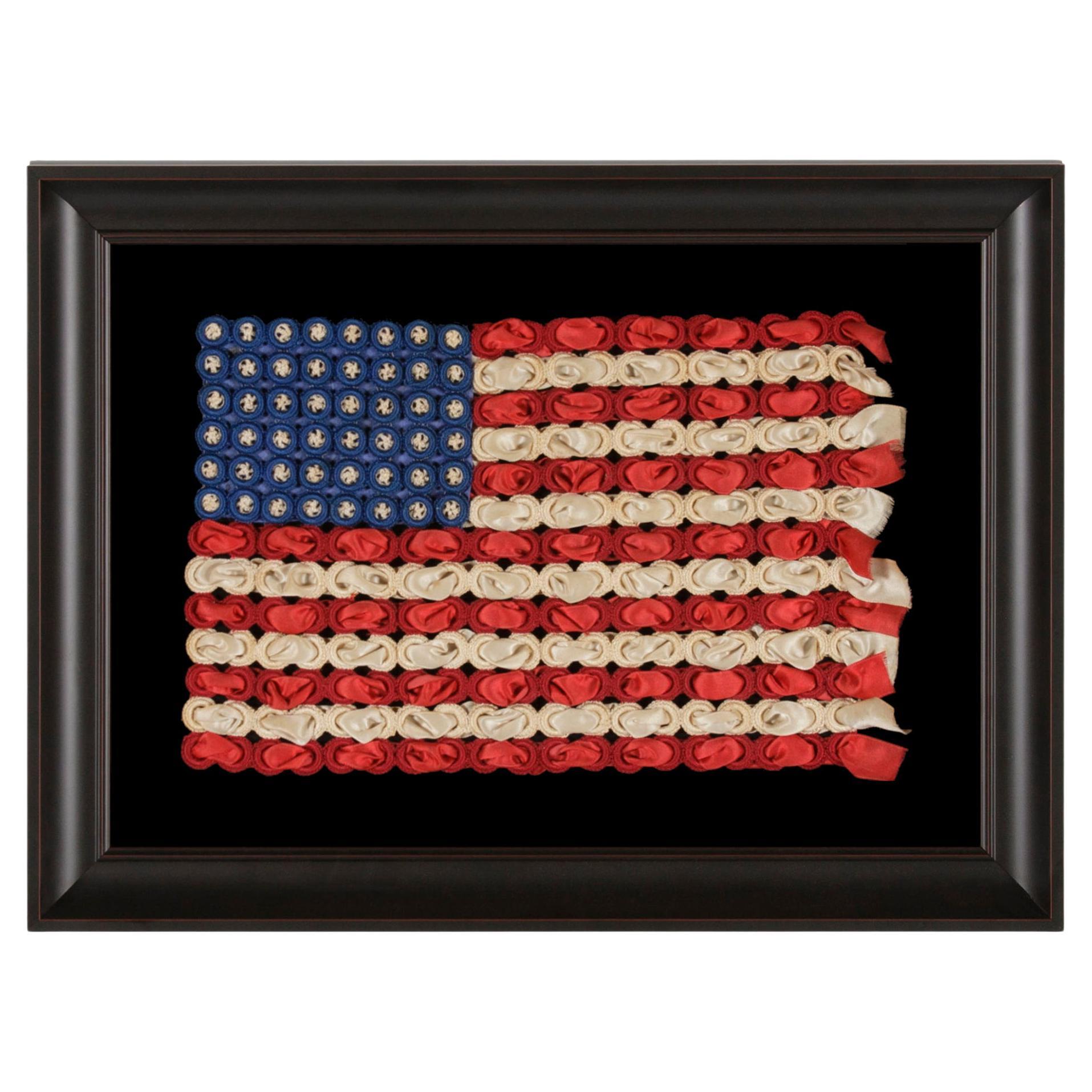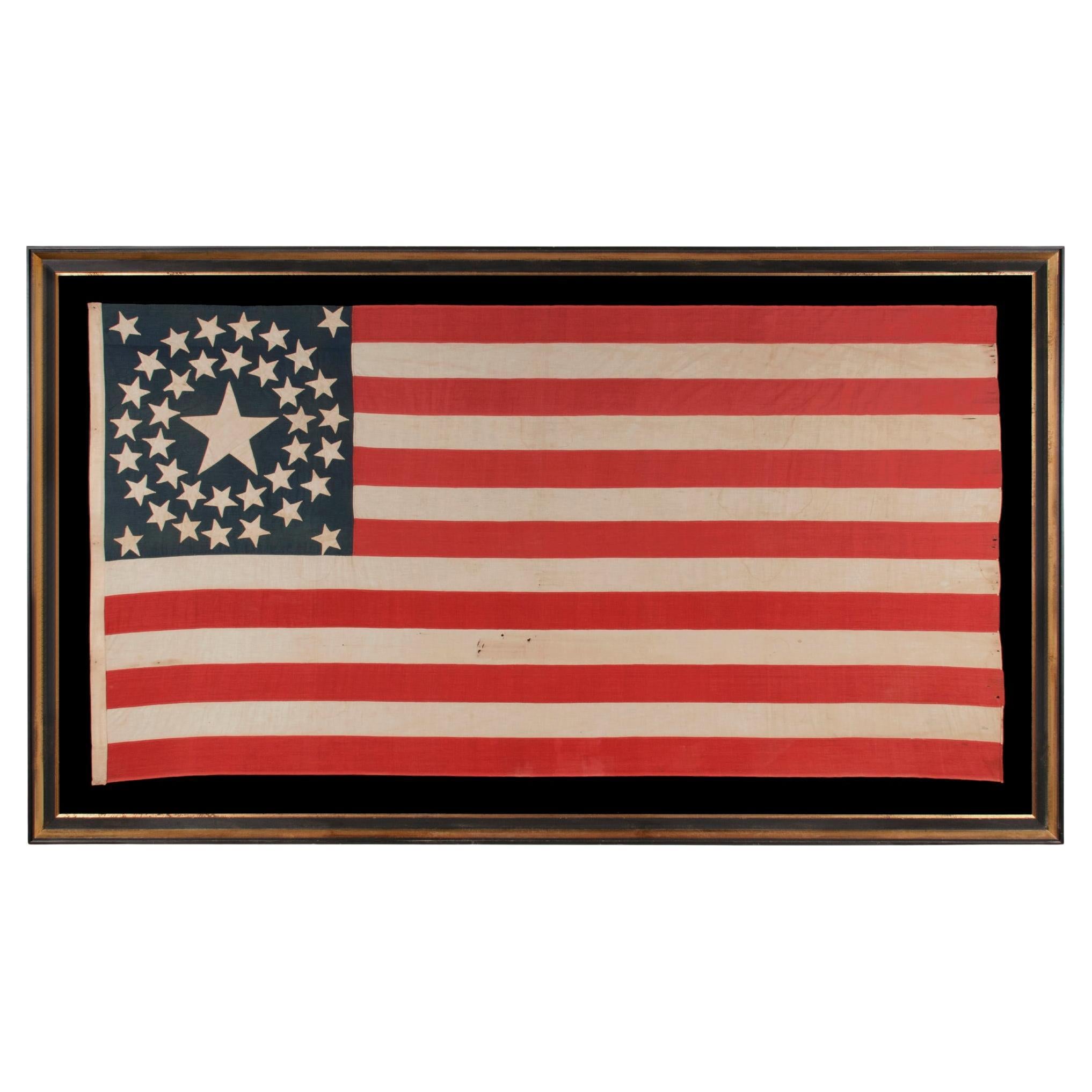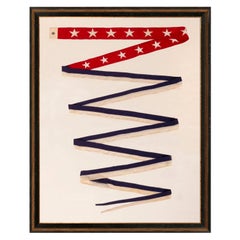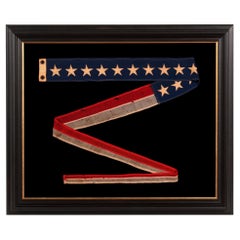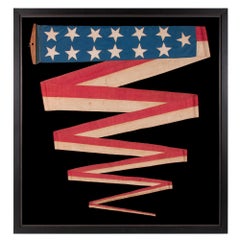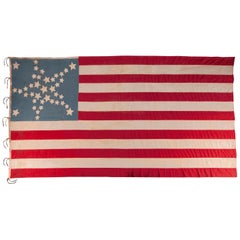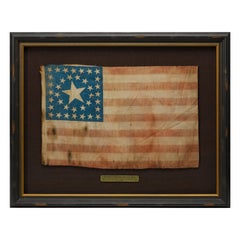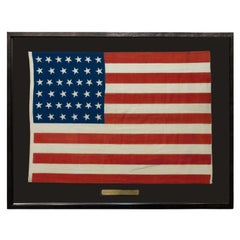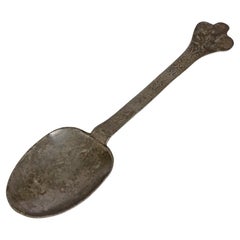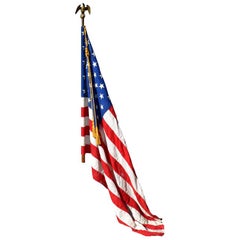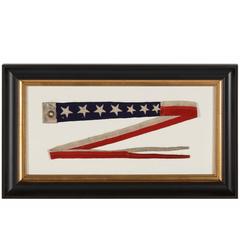
U.S. Navy Commissioning Pennant with 7 Stars
View Similar Items
Want more images or videos?
Request additional images or videos from the seller
1 of 4
U.S. Navy Commissioning Pennant with 7 Stars
About the Item
- Dimensions:Height: 14.5 in (36.83 cm)Width: 25 in (63.5 cm)Depth: 2 in (5.08 cm)
- Place of Origin:
- Period:
- Date of Manufacture:1917-1945
- Condition:See Item Description.
- Seller Location:York County, PA
- Reference Number:Seller: 7j-8741stDibs: LU84977457883
About the Seller
5.0
Recognized Seller
These prestigious sellers are industry leaders and represent the highest echelon for item quality and design.
Established in 1991
1stDibs seller since 2008
70 sales on 1stDibs
Typical response time: 1 to 2 days
Authenticity Guarantee
In the unlikely event there’s an issue with an item’s authenticity, contact us within 1 year for a full refund. DetailsMoney-Back Guarantee
If your item is not as described, is damaged in transit, or does not arrive, contact us within 7 days for a full refund. Details24-Hour Cancellation
You have a 24-hour grace period in which to reconsider your purchase, with no questions asked.Vetted Professional Sellers
Our world-class sellers must adhere to strict standards for service and quality, maintaining the integrity of our listings.Price-Match Guarantee
If you find that a seller listed the same item for a lower price elsewhere, we’ll match it.Trusted Global Delivery
Our best-in-class carrier network provides specialized shipping options worldwide, including custom delivery.More From This Seller
View AllU.S War Department Commissioning Pennant with 13 Stars
Located in York County, PA
EXTREMELY RARE U.S. WAR DEPARTMENT COMMISSIONING PENNANT WITH 13 STARS, A REVERSAL OF THE U.S. NAVY COLOR SCHEME, TWENTY-FOUR FEET ON THE FLY, SP...
Category
20th Century American Political and Patriotic Memorabilia
Materials
Wool
Price Upon Request
Commission Pennant with 13 Stars, like for Private Vessel, Ca 1892-1910
Located in York County, PA
Commission pennants are the distinguishing mark of a commissioned U.S. Navy ship. Flown at the topmast, the typical American format is a long blue field, usually with a single row of white stars, although sometimes with their total divided into two rows, followed by two long stripes, red-over-white. A ship became commissioned when this pennant was hoisted. Flown during both times of peace and war, the only time the pennant is not flown is if a flag officer or civilian official was aboard and replaced it with their own flag.
Sometimes the owners of private ships mimicked the use of Navy signals. Some seafaring men would have served in the Navy and become privy to various practices in that capacity. Others flew them purely for stylistic reasons, either on a regular basis or while the boat was dressed for special occasion. Hudson River steamers regularly flew pennants of this nature, as evidenced by period photography as well as the paintings of artists such as John and James Bard...
Category
Antique Late 19th Century American Political and Patriotic Memorabilia
Materials
Wool
Price Upon Request
Hand-Sewn 13 Star Cornflower Blue 32 Foot Commission Pennant circa 1845-1865
Located in York County, PA
ENTIRELY HAND-SEWN, 32-FOOT, SHIP’S COMMISSION PENNANT OF THE 1845-1865 ERA, A HOMEMADE, COTTON EXAMPLE, WITH 13 STARS ON A CORNFLOWER BLUE CANTON, IN A BEAUTIFUL STATE OF PRESERVATION
Commission pennants are the distinguishing mark of a commissioned U.S. Navy ship. A ship becomes commissioned when the pennant is hoisted. Flown during both times of peace and war, the only time it is not flown is if a flag officer or civilian official is aboard and replaces it with their own flag. Flown at the topmast, this would be the first thing one would see coming over the horizon and identified the vessel as a warship.
Sometimes the owners of private ships mimicked the use of Navy signals. Some seafaring men would have served in the Navy and become privy to various practices in that capacity. Others flew them purely for stylistic reasons, either on a regular basis or while the boat was dressed for special occasion. Hudson River steamers regularly flew pennants of this nature, as evidenced by period photography as well as the paintings of artists such as John and James Bard...
Category
Antique Mid-19th Century American Political and Patriotic Memorabilia
Materials
Cotton
34 Star American flag, Updated to 39 Stars, with Stars in a Great Star Pattern
Located in York County, PA
34 STARS IN A WHIMSICAL RENDITION OF THE GREAT STAR PATTERN, ON A CIVIL WAR PERIOD FLAG WITH A CORNFLOWER BLUE CANTON, UPDATED TO 39 STARS IN 1876
34 star American national flag with additional stars added and one of the most stunning graphic designs I have ever seen in early flag-making. The original pattern was comprised of a circle of 5 large stars, and triangular arms made of smaller stars. These are noticeable pointy and bent like the arms of a starfish. Made of cotton, the stars are hand-sewn and double-appliquéd to a fantastic, cornflower blue canton, a color common to Civil War uniforms...
Category
Antique 1870s American Political and Patriotic Memorabilia
Materials
Cotton
Price Upon Request
Free Shipping
38 Star Parade Flag with Whimsical 6-Pointed Stars, Colorado Statehood
Located in York County, PA
38 WHIMSICAL STARS, WITH 6-POINTED PROFILES, SIMILAR TO THE STAR OF DAVID, ON AN ANTIQUE AMERICAN FLAG OF THE CENTENNIAL ERA; A REMARKABLE SPECIMEN, ONE-OF-A-KIND AMONG KNOWN EXAMPLE...
Category
Antique Late 19th Century American Political and Patriotic Memorabilia
Materials
Cotton
Price Upon Request
1862 Civil War Playing Cards with Stars, Flag, Sheilds and Eagles
Located in York County, PA
1862 Civil War playing cards with stars, flags, shields, & eagles, and face cards illustrating civil war officers and lady, Columbia, ca 1862, Benjamin Hitchcock, New York
1862 Civil War playing cards with suits represented by stars, flags, shields, & eagles, in lieu of the traditional French suits of hearts, diamonds, clubs, and spades. The face cards feature Union Army officers and Lady Columbia [a.k.a. Lady Liberty, Goddess of Liberty]. Entitled “Union Playing Cards,” two versions of this deck were produced in New York by Benjamin W. Hitchcock’s “American Card Company.” This is the earlier of the two. The other was released in 1863.
There are 52 cards in total with the ace of spades doubling as the title card, as was often the case during the 19th century. The telescoping box...
Category
Antique 1860s American Political and Patriotic Memorabilia
Materials
Paper
Price Upon Request
You May Also Like
38-Star Antique American Flag with Unique Canton, circa 1876-1890
Located in Colorado Springs, CO
This is a striking 38-star American flag. The flag dates to 1876-1890, when Colorado (represented by the large star in the center of the flag’s canton) joined the Union as the 38th s...
Category
Antique Late 19th Century American Political and Patriotic Memorabilia
Materials
Muslin
39-Star Antique American Flag with 'Whimsical' Star Pattern, 1889
Located in Colorado Springs, CO
This is a 39-star unofficial American flag, handmade and printed on cotton. The flag dates to 1889 and has a unique history, thanks to its rare star-count.
The flag’s canton is prin...
Category
Antique 1880s American Political and Patriotic Memorabilia
Materials
Cotton
William & Mary Rare Pewter Trefid Spoon with Portraits, Circa 1690
Located in Bishop's Stortford, Hertfordshire
Very rare William and Mary pewter trefid spoon the handle molded in relief with portraits and dating from around 1690. The spoon has an elongated rounded ...
Category
Antique 17th Century English William and Mary Political and Patriotic Me...
Materials
Pewter
Antique Federal Eagle American 50 Star Flag with Brass Eagle Pole, 19th Century
Located in Oklahoma City, OK
Monumental 50 star American Flag with antique Federal Eagle brass and wood pole. A patriotic piece suitable for any home. This set includes both ...
Category
Antique 19th Century American Federal Political and Patriotic Memorabilia
Materials
Brass, Bronze
$4,800 Sale Price
20% Off
Sensational Early 19th Century Chapeau De Gendarme Hat Box
Located in Round Top, TX
A sensational early 19th century French Chapeau De Gendarme - officer's hat box in leather. Such a nostalgic shape!! A great accent piece for any b...
Category
Antique Early 19th Century French Arms, Armor and Weapons
Materials
Leather
Antique 13-Star Patriotic Sash by Louis E. Stilz & Bros., Late 19th Century
Located in Colorado Springs, CO
Presented is an original patriotic sash from the late 19th century, featuring 13 stars against a bright blue field. This sash features appliqued silver stars on a blue canton, red an...
Category
Antique Late 19th Century American Historical Memorabilia
Materials
Cotton
Recently Viewed
View AllMore Ways To Browse
Vintage Flag Stand
Pennant Frame
Brass Record Stand
Folding Book Stand
Vintage Bunting
Commissioning Pennant
Hand Painted Banner
Antique Ship Anchor Anchors
Antique Stripe Fabric
Centennial 1876
Canton Blue And White
American Flag Cotton
Small American Flag
Antique American Flag Framed
Space Memorabilia
Navy Flags
Stars And Stripes Vintage
Antique Yard Art
